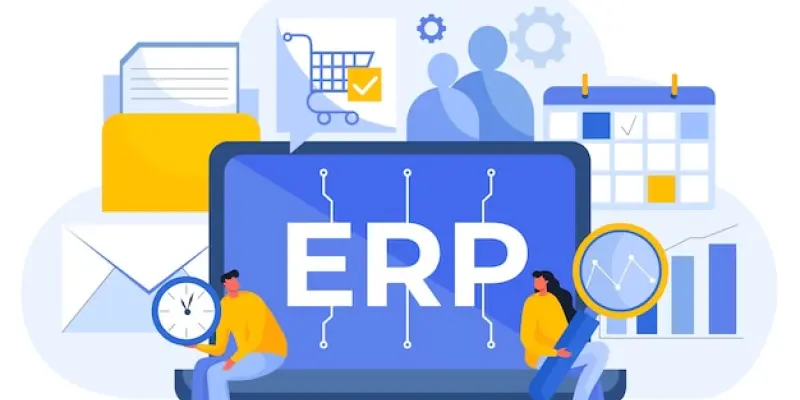In today’s competitive business landscape, managing finances effectively is crucial, and enterprise resource planning (ERP) systems have emerged as valuable tools for achieving this goal. As businesses continue to seek methods for optimizing operations, the integration of payment processing within ERP systems stands out as a powerful strategy for enhancing cash flow and improving customer experiences. By seamlessly embedding payment functionalities into ERP platforms, companies are addressing longstanding challenges, from cumbersome billing practices to inefficient reconciliation tasks. Such integration transforms ERP into a comprehensive solution for financial management, offering the necessary tools to support both cash flow acceleration and customer satisfaction in real time. This narrative serves as a backdrop for understanding how embracing modern ERP capabilities can transform business operations and propel growth with increased efficiency and strategic focus.
Enhancing Billing and Payment Processes
The integration of payment processing capabilities within ERP systems represents a major leap forward in streamlining billing and payment processes for businesses. By coupling ERP solutions with functionalities like credit card and ACH payment processing, companies can eliminate the need for switching between disparate systems, leading to more efficient operations. This integration simplifies payment captures and batch processing, enabling businesses to manage multiple payment methods directly through familiar ERP modules like Sales Order Processing and Receivables Management. With these capabilities embedded into daily workflows, organizations can execute smoother transactions that significantly enhance financial management while reducing manual workflows that traditionally bog down productivity. The end result is not only enhanced cash flow but also heightened accuracy and reliability, foundational aspects that further solidify the importance of integrated ERP systems in modern-day financial operations. Emphasizing convenience for customers is another key aspect of integrated ERP systems that has come to the fore in recent years. By offering self-service portals, companies are enabling customers to take control of their accounts, view invoices, make timely payments, and receive automated alerts, all of which contribute to faster cash inflow and reduced support inquiries. Customers appreciate the autonomy and ease of accessing account information, fostering positive relationships and further driving satisfaction. The merger of integrated processing and self-service features provides a dual benefit: while businesses gain accelerated cash flow through smoother payment processes, customers enjoy improved service experiences. These enhancements prove vital in competitive markets, where stellar customer service can differentiate a business from its competitors. The ability to effortlessly monitor account transactions and handle payments via user-friendly platforms elevates customer engagement levels, demonstrating how ERP integrations have become synonymous with modern customer-centric approaches.
Security and Flexibility Advantages
Security remains a top priority when integrating payment processing with ERP systems, as companies handle sensitive financial data that must be protected against breaches. Integration within ERP systems ensures robust security measures, including tokenization of all transactions, effectively safeguarding customer data. By supporting numerous payment gateways, ERP systems offer users a flexible payment module that accommodates varied customer preferences, from Level 2/3 processing to compliant surcharges. Businesses stand to benefit significantly from this flexibility, leveraging it to address both customer demands and regulatory requirements with ease. Furthermore, ERP integrations allow for secure, streamlined payment processes to supplement business operations, providing a confidence boost for both companies and their clients. Achieving data security and maintaining flexibility are critical in responsibly managing payment operations in today’s rapidly evolving digital environment. For Dynamics users specifically, the integration of payment processing into ERP systems offers tangible benefits that extend into everyday operations. Tasks such as account reconciliation and overdue payment management can be significantly minimized, allowing teams to focus their efforts on impactful projects. By automating time-consuming processes and providing comprehensive transaction visibility, the integration fosters efficiency and supports streamlined cash flow management, a crucial factor for maintaining financial health in an organization. Implementation of these systems not only raises an organization’s ability to adapt and respond swiftly to cash flow demands but also enhances strategic oversight with real-time data insights. ERP platforms thus become instrumental in enabling businesses to retain control over financial processes while accommodating the intricacies and dynamics of the marketplace. This balance between functionality and adaptability underscores why integrated payment processing has outlasted traditional systems in offering a forward-thinking approach to business management.
Strategic Business Enhancement
Integrating payment processing within ERP systems marks a significant advancement in streamlining billing and payment functions. By pairing ERP solutions with features such as credit card and ACH payment processing, businesses can avoid switching between different systems, thus enhancing operational efficiency. This integration facilitates payment capture and batch processing, allowing businesses to manage various payment methods through familiar ERP modules like Sales Order Processing and Receivables Management. By embedding these capabilities into daily workflows, companies execute seamless transactions, improving financial management while eliminating the manual processes that usually hinder productivity. This results in improved cash flow and increased accuracy, reinforcing the importance of integrated ERP systems in modern financial operations.
Another vital aspect is the convenience for customers, achieved through self-service portals. These portals allow customers to manage their accounts, view invoices, make timely payments, and receive automated alerts, resulting in faster cash inflows and fewer support inquiries. This autonomy boosts customer satisfaction, promoting positive relationships, while businesses enjoy improved cash flow. In competitive markets, stellar customer service is crucial for differentiation. User-friendly platforms for monitoring accounts and handling payments enhance customer engagement, showcasing how ERP integrations align with modern customer-centric practices.

